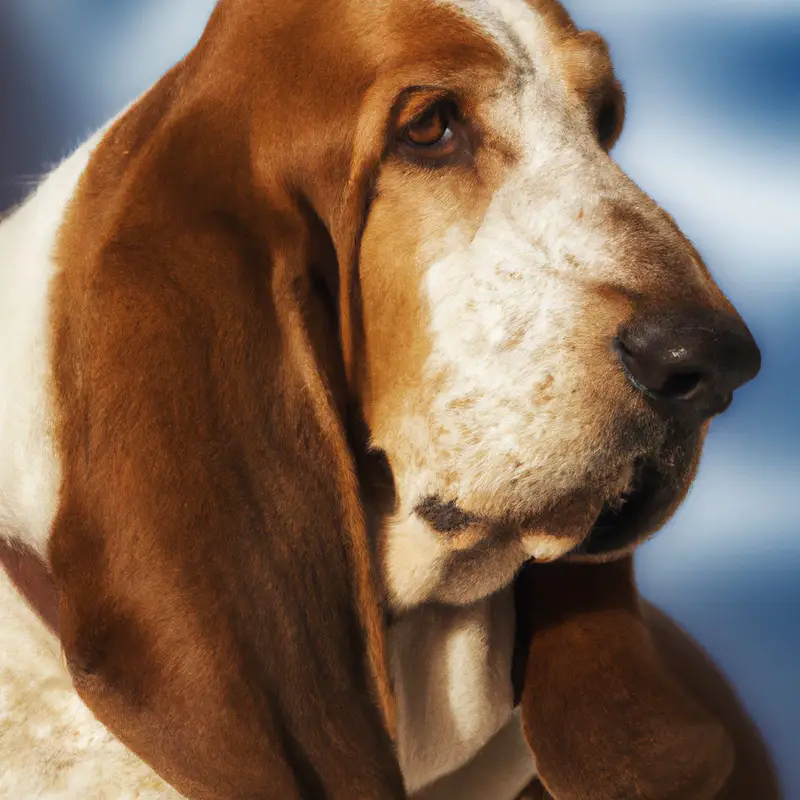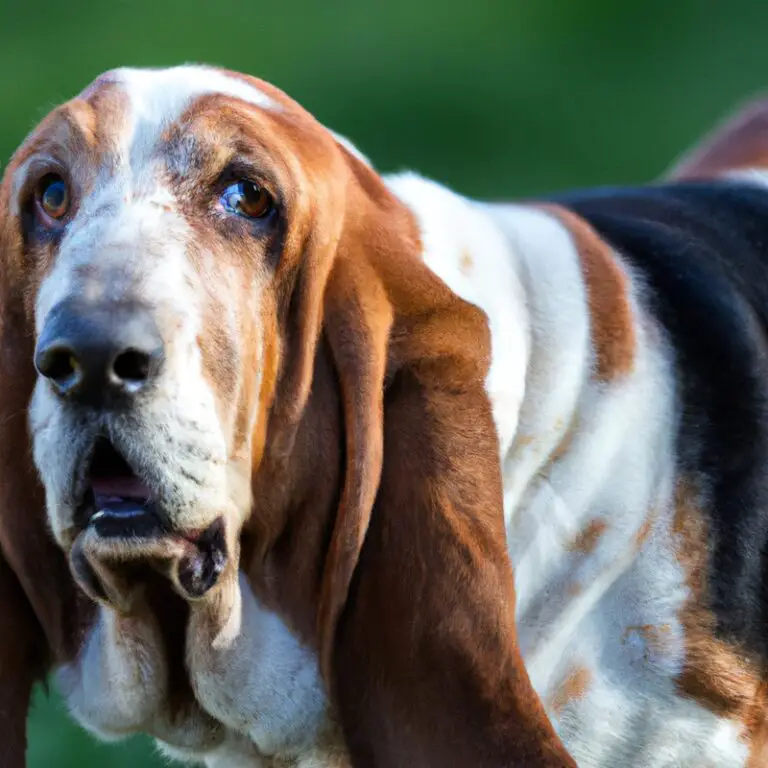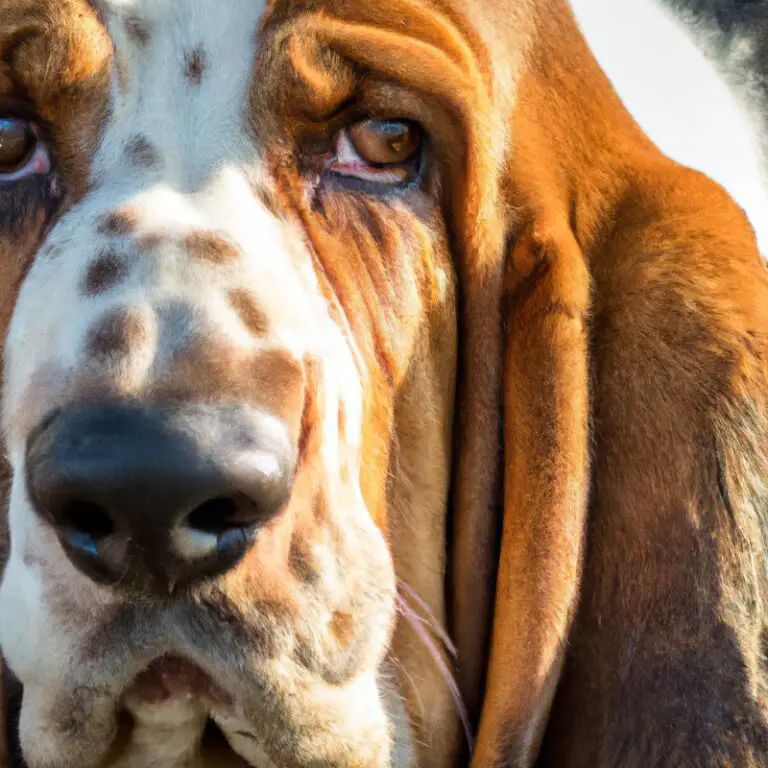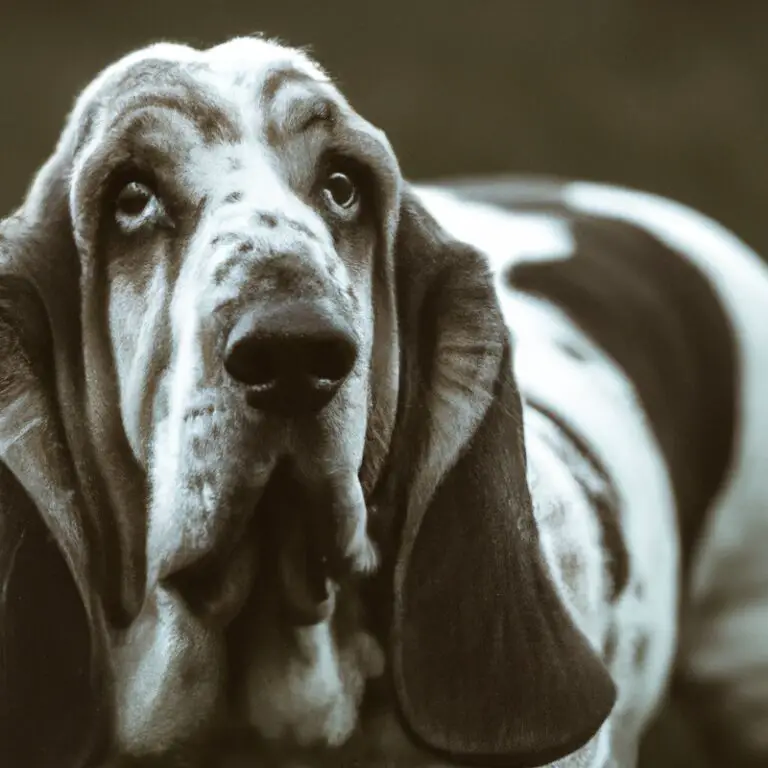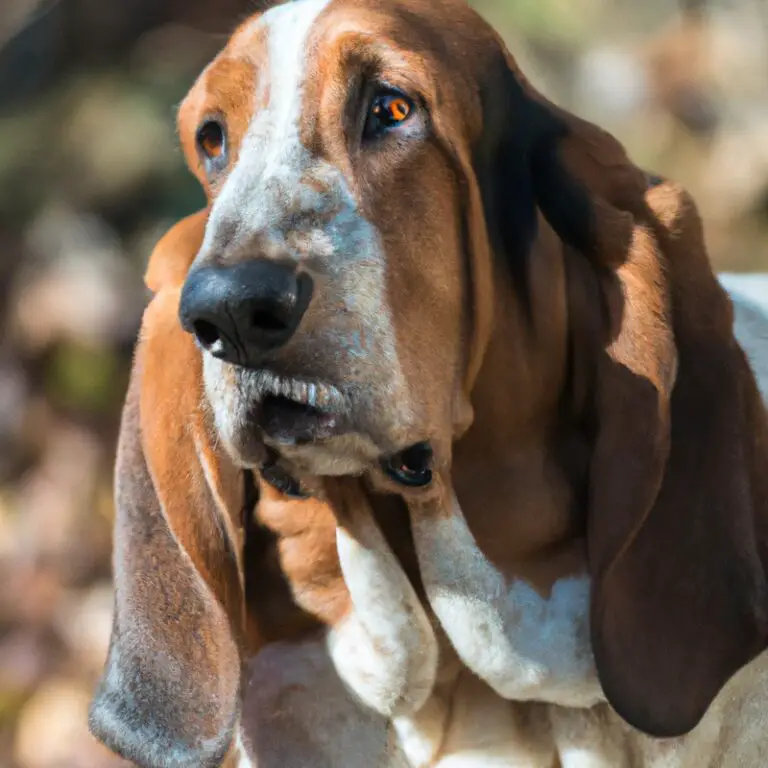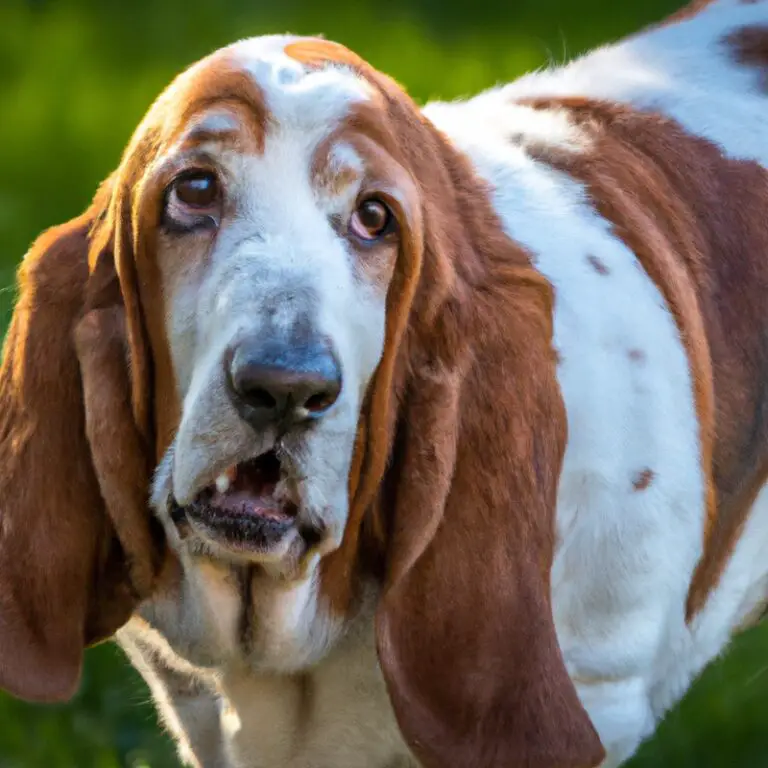Can Basset Hounds Be Trained For Protection Work?
Key Takeaways:
- Basset Hounds are not typically suited for protection work due to their friendly and non-aggressive nature.
- Their physical limitations, such as their short stature and long ears, make them less effective as protection dogs.
- Basset Hounds may not possess the natural instincts and traits required for protection work, making intensive training challenging.
- While Basset Hounds can be trained in basic obedience, it is best to consider other breeds for specific protection tasks.
Can Basset Hounds, with their droopy ears and soulful eyes, really be trained for protection work? It’s a question that may come as a surprise to many, but as an expert in canine training, I’m here to shed light on this fascinating topic.
In this article, we’ll dive into understanding Basset Hounds, their history, characteristics, and distinct temperament.
We’ll explore the world of protection work, discussing what it entails and the breeds typically well-suited for it. And of course, we’ll address the limitations and alternative roles for Basset Hounds in this line of work.
So, if you’re curious to know if these adorable hounds have what it takes to protect, read on!
| Aspect | Yes | No |
| Physical Capabilities | Strong sense of smell and hearing | Not physically agile or fast |
| Temperament | Laid back and friendly | Non-aggressive and trusting by nature |
| Trainability | Respond well to positive reinforcement | May be stubborn and independent |
| Protective Instinct | Can be territorial and alert | Not naturally inclined to guard or protect |
| Training Time and Effort | Require consistent and patient training | May not have high drive for protection work |
Understanding Basset Hounds
History and Characteristics of Basset Hounds
Basset Hounds have a fascinating history that traces back to 6th century France.
They were bred for hunting small game, particularly rabbits, thanks to their exceptional sense of smell.
These adorable dogs have distinct characteristics like their long ears, short legs, and droopy eyes that make them easily recognizable.
Bassets have a friendly and gentle nature, making them great companions.
They are known for their laid-back and easygoing temperament.
Despite their cute appearance, Basset Hounds are independent thinkers and can be stubborn during training.
Patience and positive reinforcement techniques are key when training these lovable hounds.
Temperament of Basset Hounds
Basset Hounds have a friendly and lovable temperament.
They are known for being extremely calm and easygoing.
They are generally very good with children and get along well with other dogs and pets.
Basset Hounds are also known for being patient and tolerant, making them a great choice for families.
However, they can be a bit stubborn when it comes to training, so patience and consistency are key.
While they may not be suitable for protection work due to their non-aggressive nature, they make excellent companion dogs.
Training Basset Hounds
Basic Training for Basset Hounds
Basic training for Basset Hounds is essential and can be a rewarding experience. Start with housebreaking and teaching them basic commands such as sit, stay, and come.
Use positive reinforcement and rewards to motivate them.
Basset Hounds have a stubborn streak, so be patient and consistent with your training. Socialize them with other dogs and people to ensure they are well-rounded.
Remember to keep training sessions short and fun to maintain their interest.
With time and effort, your Basset Hound can become a well-behaved companion.
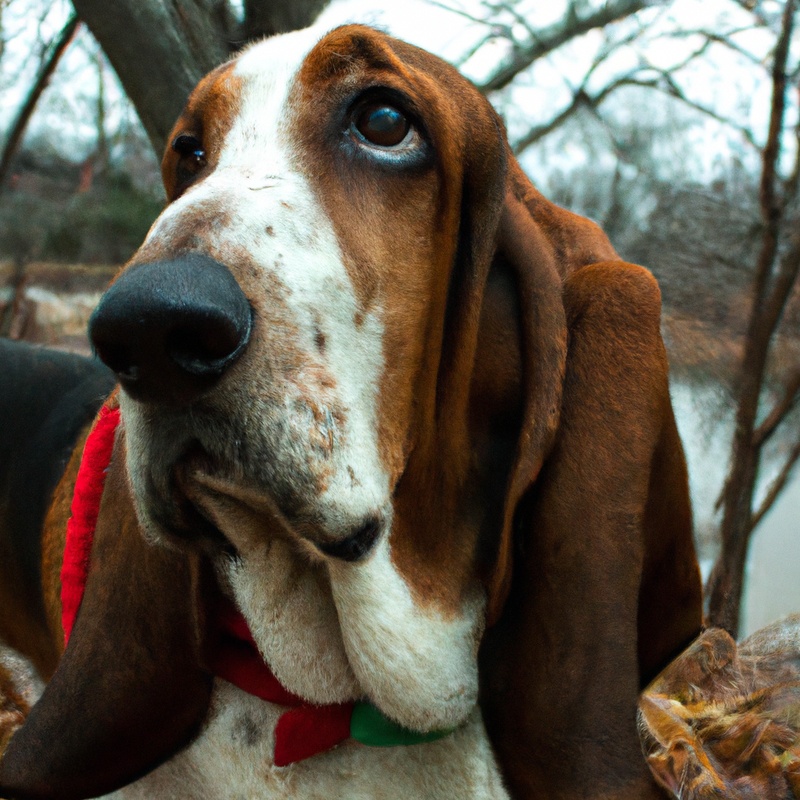
Socialization for Basset Hounds
Socialization is crucial for Basset Hounds.
It helps them become well-rounded, confident, and friendly dogs.
Start socializing your Basset Hound from an early age, exposing them to various people, animals, and environments.
Take them for walks, visits to parks, and introduce them to different sights, sounds, and smells.
Encourage positive interactions with other dogs and reward good behavior.
Gradually increase the level of socialization as your Basset Hound grows.
Regular and positive socialization will help your Basset Hound become a happy and well-behaved companion.
Obedience Training for Basset Hounds
Obedience training is essential for Basset Hounds. They can be a bit stubborn, but with patience and consistency, they can learn to follow commands.
Start with basic commands like sit, stay, and come.
Positive reinforcement, such as treats and praise, works well with Basset Hounds. Keep training sessions short and engaging to maintain their interest.
Socialization is also important to ensure they behave well around people and other animals.
Consider seeking professional help for more advanced obedience training.
Protection Work and Basset Hounds
What is Protection Work?
Protection work refers to the training of dogs to guard and protect people, property, or other valuable assets. It involves teaching dogs specific skills and behaviors to deter potential threats and respond appropriately in potential dangerous situations.
This type of training typically includes teaching dogs to bark on command, display aggression when necessary, and protect their handler or designated area.
Protection work is commonly utilized by law enforcement, security personnel, and in some cases, by individuals who require personal protection. It requires a high level of training, consistency, and careful evaluation of the dog’s temperament and capabilities.
Breeds Suitable for Protection Work
Certain breeds are known for their natural protective instincts and are more suitable for protection work. Breeds like German Shepherds, Doberman Pinschers, Rottweilers, and Belgian Malinois are commonly used in protection roles.
These breeds possess the physical strength, intelligence, and loyalty required for tasks such as guarding, tracking, and apprehending intruders.
Their alertness, agility, and trainability make them ideal for protection work. However, it is important to remember that individual temperament and training play a significant role in determining a dog’s suitability for protection work.
It is essential to evaluate each dog’s characteristics and work with experienced trainers to assess their potential for this type of work.
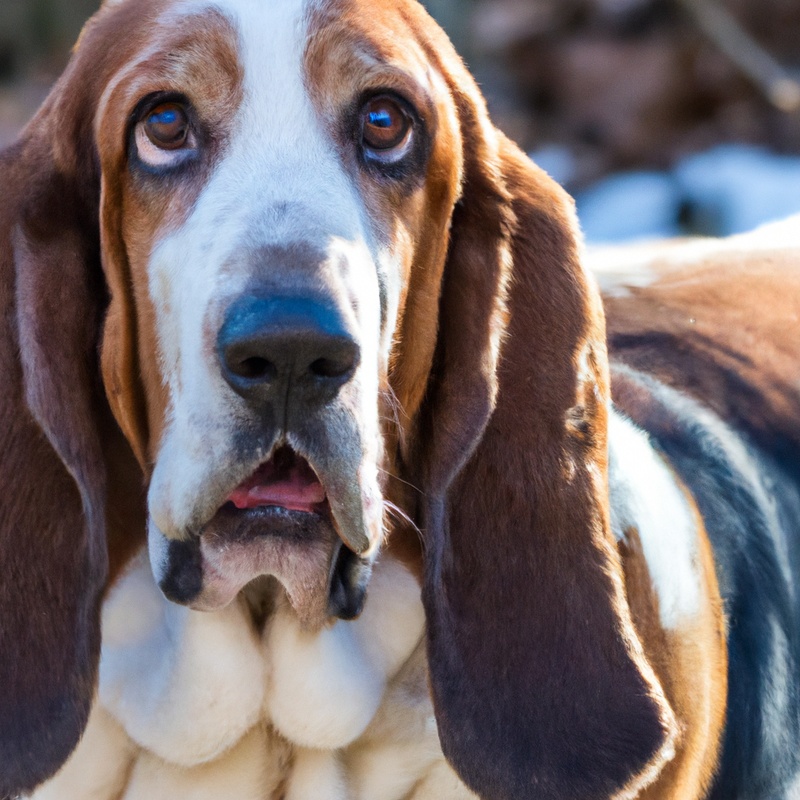
Evaluating Basset Hounds for Protection Work
Evaluating Basset Hounds for protection work involves considering their physical and temperament traits.
First, their size and strength should be assessed to determine if they can effectively deter intruders.
Second, their temperament should be evaluated to ensure they have a protective instinct and are fearless when faced with potential threats.
Additionally, their level of trainability and intelligence should be considered, as these qualities are crucial for successful protection work.
It is also important to note that while Basset Hounds may not be the most obvious choice for protection work due to their laid-back nature, individual dogs may still possess the necessary qualities with proper training and socialization.

Limitations of Basset Hounds for Protection Work
Physical Limitations of Basset Hounds
Basset Hounds have physical limitations that can affect their ability to excel in protection work.
Firstly, their short legs and long bodies can make it challenging for them to navigate obstacles quickly and efficiently.
Secondly, their loose skin and droopy ears can hinder their ability to detect and respond to potential threats.
Thirdly, their gentle and laid-back nature may make them less inclined to engage in protective behaviors.
Despite these limitations, Basset Hounds can still be wonderful family pets and excel in other roles such as therapy or tracking work.
Instincts and Traits That Affect Protection Work
Basset Hounds have certain instincts and traits that can affect their ability to excel in protection work.
Firstly, their friendly and non-aggressive nature makes them less inclined to be guard dogs.
They are more likely to approach strangers with curiosity rather than suspicion.
Additionally, their strong tracking instincts may distract them from their protective duties.
Lastly, Basset Hounds are not known for their speed or agility, which can limit their effectiveness in certain protection scenarios.
While they may not be the ideal choice for protection work, they can still excel in other roles such as therapy or search and rescue.
Alternative Roles for Basset Hounds
Basset Hounds may not be suited for protection work, but they excel in various alternative roles.
Here are some alternative roles for Basset Hounds:
- Tracking: Basset Hounds have an exceptional sense of smell, making them excellent tracking dogs. They can be trained to track missing persons, animals, or even objects.
- Search and Rescue: Due to their tracking abilities, Basset Hounds can be valuable assets in search and rescue operations. Their keen sense of smell and determination make them reliable in locating missing individuals.
- Therapy Dogs: Basset Hounds have a calm and gentle nature, which makes them ideal therapy dogs. They can provide comfort and emotional support to those in need, such as in hospitals, nursing homes, or schools.
- Scent Detection: Basset Hounds’ exceptional sense of smell can be utilized in scent detection work. They can be trained to detect specific scents, such as drugs, explosives, or bed bugs.
- Companion Pets: Above all, Basset Hounds make wonderful companions. They are known for their affectionate nature and loyalty, making them ideal pets for families or individuals seeking a loving and devoted canine companion.
Tips for Training Basset Hounds for Protection Work
Patience and Consistency in Training
When it comes to training Basset Hounds for protection work, patience and consistency are crucial. Bassets can be stubborn, so it’s important to stay calm and patient throughout the training process.
Consistency is key – establish clear rules and routines, and stick to them.
Reward good behavior consistently and avoid punishment. Training takes time, but with patience and consistency, Basset Hounds can learn and excel in protection work.
Positive Reinforcement Techniques
Positive reinforcement is a highly effective technique for training Basset Hounds for protection work. Here are some key techniques:
- Reward-based training: Reward your Basset Hound with treats, praise, and playtime when they exhibit desired behaviors during training sessions.
- Clicker training: Use a clicker to mark the exact moment your dog performs a desired behavior, followed by a reward. This helps reinforce the behavior.
- Consistency: Be consistent in your rewards and timing. This will help your Basset Hound understand what behaviors are being reinforced.
- Patience: Training takes time, so be patient with your Basset Hound. Celebrate small victories and provide encouragement throughout the process.
- Break it down: Break complex tasks into smaller, more manageable steps. This allows your Basset Hound to learn and progress at their own pace.
Remember, positive reinforcement builds a strong bond between you and your Basset Hound, making training a positive and enjoyable experience for both of you.
Seeking Professional Help
If you’re considering training your Basset Hound for protection work, seeking professional help is highly recommended.
A professional dog trainer or behaviorist can provide expert guidance and support throughout the process.
They have the knowledge and experience to assess your Basset Hound’s temperament, determine their suitability for protection work, and tailor a training plan to their specific needs.
Professional help ensures that you’re using effective and safe training methods, and it can also help you address any challenges or concerns that may arise along the way.
Remember, investing in professional assistance can greatly increase the success and reliability of your Basset Hound’s protection training journey.
Final Verdict
While Basset Hounds may not be the obvious choice for protection work, they can still be trained to some extent.
Their history as hunting dogs gives them a natural inclination to sniff out and track scents, making them valuable in search and rescue operations.
However, their physical limitations and friendly nature make them less suited for tasks requiring aggression or intimidation.
It’s important to remember that every dog is unique, and while Basset Hounds may not excel in protection work, they can still thrive in other roles that suit their temperament and abilities.
Training should focus on their natural instincts and strengths, using positive reinforcement and consistency.
Seeking professional help can provide valuable guidance and ensure the safety and success of both the dog and its handler.

